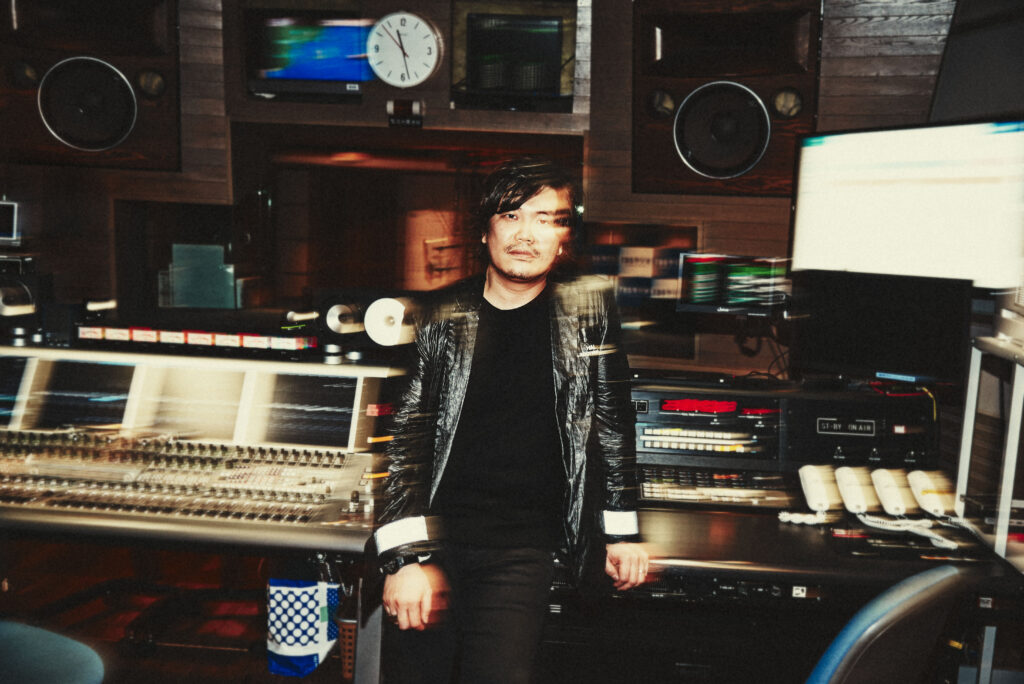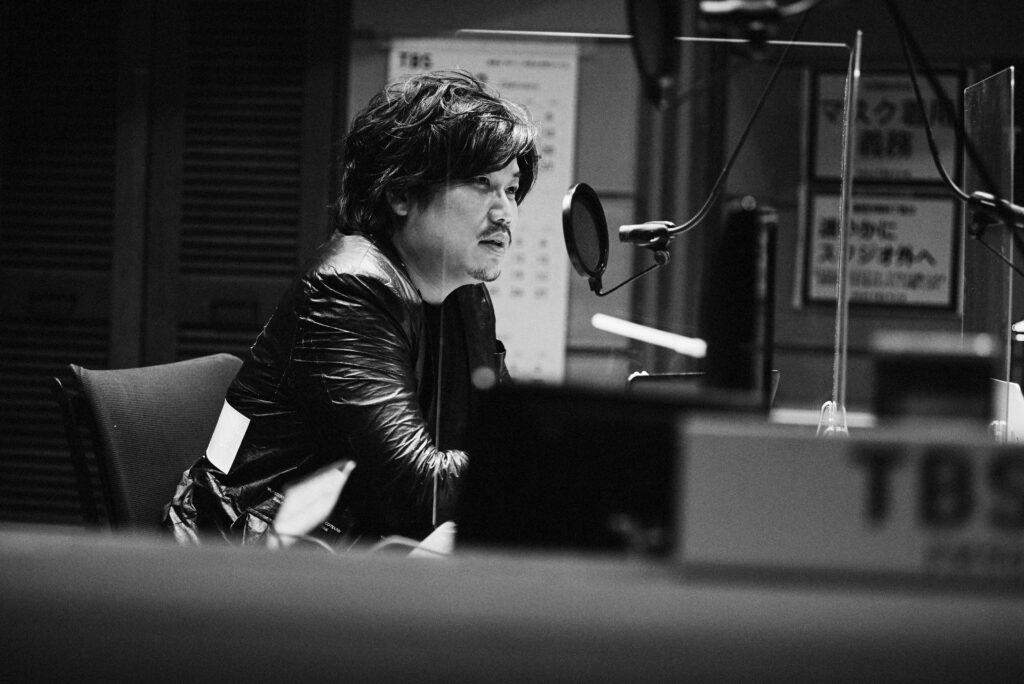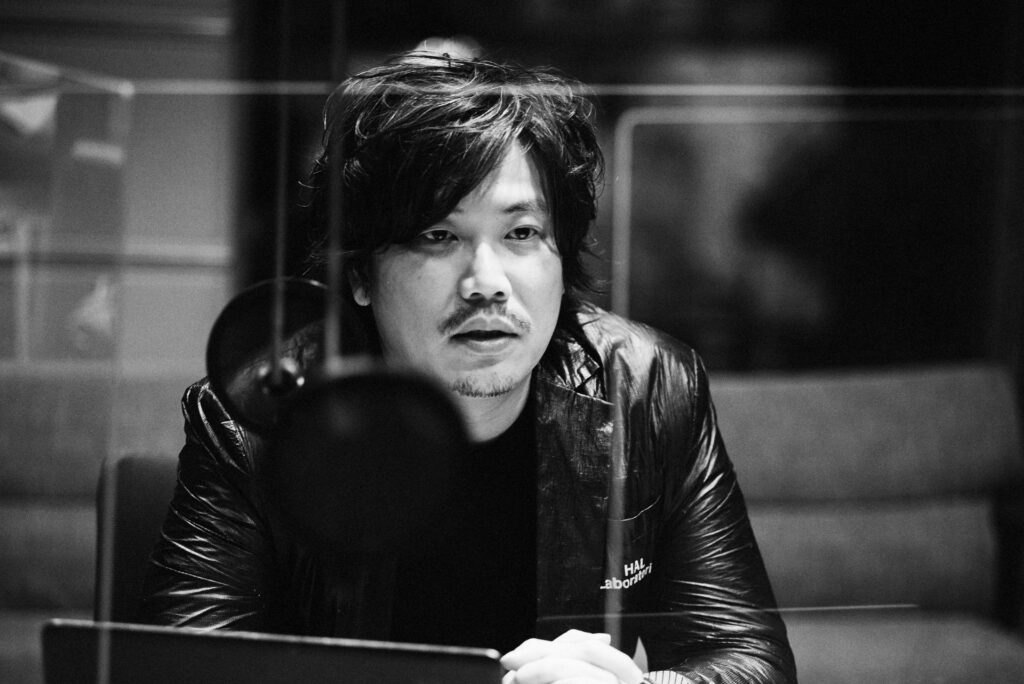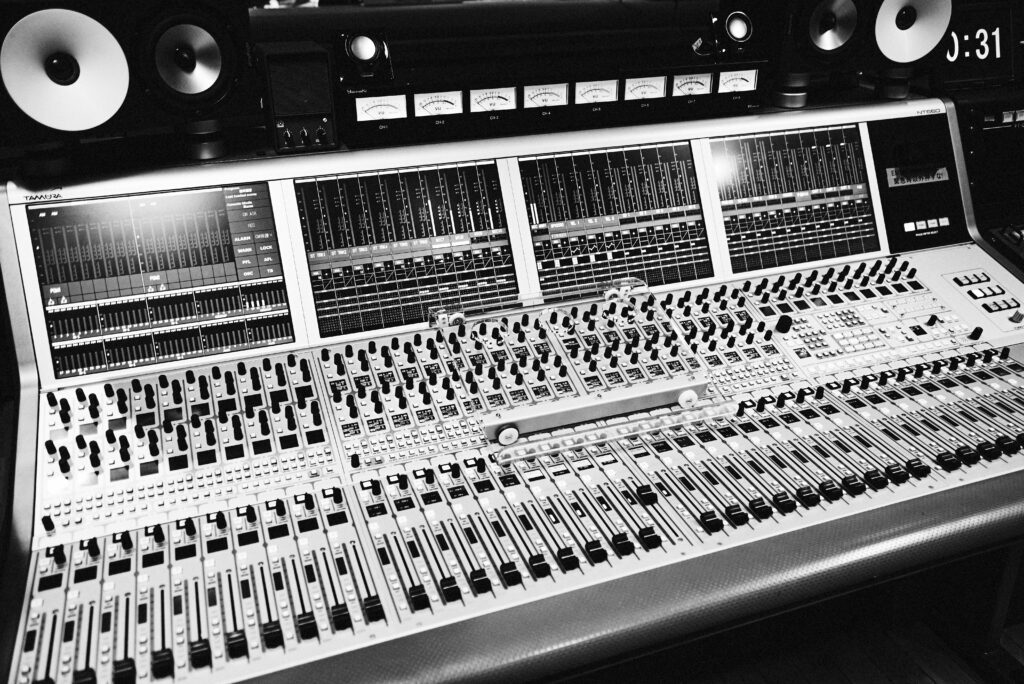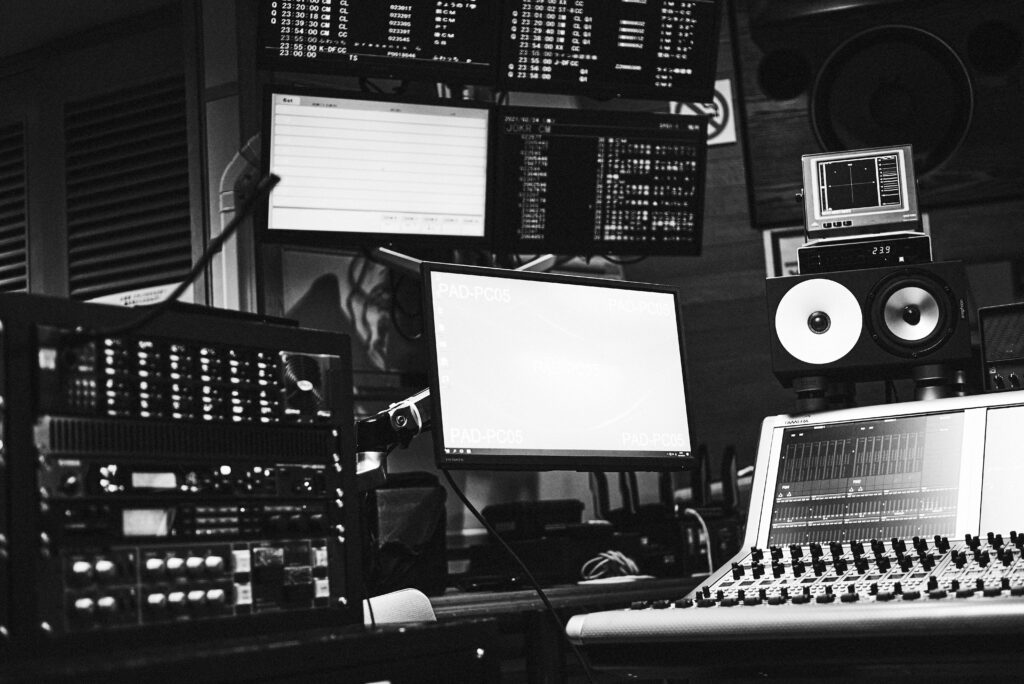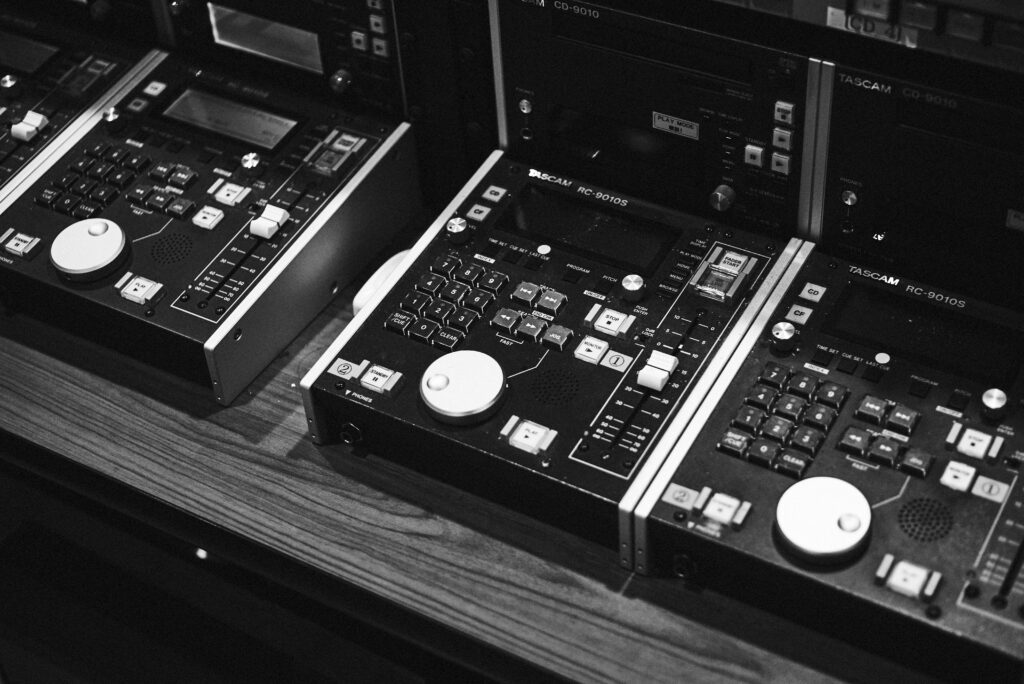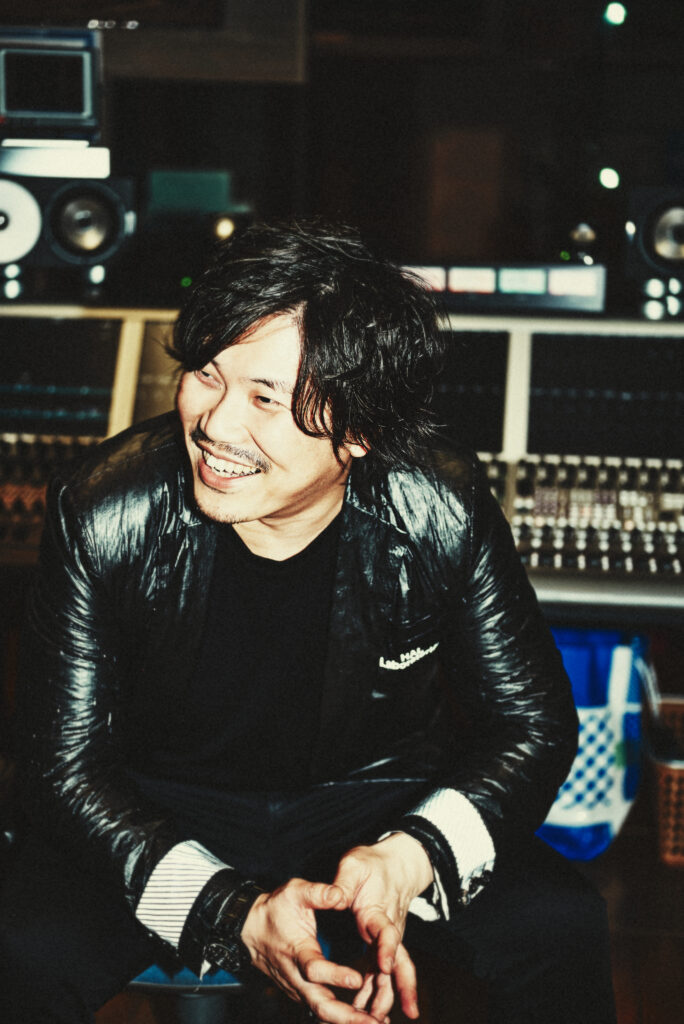The culture curation program “After 6 Junction” (hereinafter “Atrok”) started on TBS Radio in April 2018. Utamaru from Japanese hiphop crew RHYMSTER performs as a main MC for this 3-hours live show being broadcasted from 18:00 to 21:00 on weekdays, introducing many different kinds of culture every time. We talked to the producer of program, Yoshifumi Hashimoto of TBS Radio. The first part of the interview has unveiled the stories behind the launch of “Atorok” and thoughts of the producer put into it, whereas the second part will highlight the detailed process of program production of “Atrok”.
The program for wider range of listeners beyond cultural connoisseurs
—— At “Atrok,” TBS announcers have joined as a partner of Utamaru. My impression was that “Weekend Shuffle” was the program made for cultural connoisseurs, whereas the participation of announcers has widened the program’s scope of listeners. Did you do it intentionally?
Yoshifumi Hashimoto (henceforth, Hashimoto): That’s right. I was thinking that the every-weekday program from 18:00 to 21:00 would need to be opened to wider audience. Although I never meant to make “Weekend Shuffle” for cultural connoisseurs, this was something that I was strongly aware of before starting it. In the process of exploration, I figured out setting up the scene for dialogue between Utamaru and those of totally different age, gender and taste background could make the program more accessible to people from all walks of life.
For example, when it comes to culture, even if one of the presenters says “Gundam is nostalgic” and “I was playing Pokemon,” works that the one is familiar with is varies depending on the generation. So one of the purposes of it is to deter unilateralist way of thinking and imbalanced value judgement. Through the dialogues between people of different generations and genders, listeners can see the culture from various aspects.We living in an era where we see diversity as common sense, the programs should embody that value.
However, I’m not saying that it could work well with any announcer. During years of work experience with TBS announcers, I was researching who would fit the radio, and more specifically this program, before the show began. Therefore, the “Atrok” members consists of five people * with distinct individualities whom I have thought would do well and confidently selected, judging from my previous experiences. We have anime-lover, gamer, film-lover and a person with interestingly excessive self-consciousness (laughs).
* “Atrok” partners are Kazato Kumazaki on Monday, Misato Ugaki on Tuesday, Maoko Hibi on Wednesday, Risa Unai on Thursday, and Takaaki Yamamoto on Friday.
——Do you mean a certain gaps in dialogues are somehow welcomed in this program, right?
Hashimoto: Obviously, people will find pleasure in conversations between people with the same values. However, I thought a space where people from various positions exchange their views in an open manner would allow listeners learn more from them. The point is that we can enjoy listening to the conversation between those who accept with each other as a person. Besides, the announcers even have taken a leading role for some episodes.
For example, without Misato Ugaki, it would have been impossible to realize most of episodes on anime or manga, while without Risa Unai, the features on the game would not have become as big as it is now. Other episodes starring the announcer include sessions about theatrical performances led by Maoko Hibi, a special feature on Korean dramas loved by Kazato Kumasaki, and stories on film analysis from Yamamoto Anna’s perspective on the representations of foods.
Above all, we appreciate Utamaru’s humble attitude of learning from any person. Although he describes himself as conservative, he’s a person who is always willing to update himself. Also, the great thing is that people can sympathize with each other across generations through culture. People of different generations may have different form of affections for “Evangelion”. Yuzo Kayama, known as a game lover, has once said on the radio that he was competing for biohazard scores with his grandchildren and I loved that story a lot.
——Have you ever thought of making Maho Shimao, who was Utamaru’s partner in “Weekend Shuffle”, his partner in “Atrok” again?
Hashimoto: That’s a pointed question that only a long-time listener can ask! (Laughs) Speaking from the producer’s point of view, we need to let her off the leash. However, when it comes to “Atrok”, Utamaru’s partners have many things to deal with such as conveyance of traffic information. That role is not for her, I am afraid.
Also, as Shimao herself said, it is better for her to have a certain distance from the program, so that she can look at the program calmly without getting immersed in it too much and tells us what is missing. I feel that such an attitude is better for each other. So now, we are asking her to appear on the program once or twice a month to do an overfree session as an embodiment of her ideal radio program, and to play the role of an observer. Actually, Shimao is very strict with himself, and she is very concerned about getting in too cozy relationship with each other, so that might be one of the reasons. Although people might feel she is free of stoicism, but she pays great attention to what she is outputting.
The special feature starts from “something not yet known”
——The content of the special features are quite varied, from ones for cultural beginners to connoisseurs. How do you decide?
Hashimoto: Basically, I don’t intend to do projects only for culturally informed listeners. Even if the theme of the episode is a niche, I rather place great importance on how we can deliver it to those who do not have any knowledge about it or are not interested in it. If it sounds like it’s only for connoisseurs, that project was a failure (laughs).
On the other hand, even if an episode deals with well-known matter, we can make it much more interesting by highlighting the unknown side of it. For example, in the recent episode, we focused on “dancer” as a profession. Even if we are vaguely familiar with it, we don’t actually know almost anything about their extremely unfavorable working conditions. I want to convey that kind of something “we didn’t know.” Therefore, basically, projects often start with “what is not yet known”.
——How long have you been thinking about it?
Hashimoto: I’ve been thinking about it for about a month or two. Depending on the theme, some projects are not fixed until the last minute.
——Are you thinking about the proportion of the fields of culture it deals with, such as movies, music, manga and games?
Hashimoto: Although I’m not very conscious of it, it feels like a certain theme is naturally allocated to the day of staff and partners who have strong knowledge about it. Anime and manga are tended to be featured on Tuesdays with Ugaki, and games are on Thursdays with Unai. I mean, I am surprised that you are interviewing me about such a small detail! That’s something never been concerned even within our radio station! (laughs).
——As a listener, I’ve been curious about it because it deals with such a wide range of things. Still, isn’t it difficult to think of a special feature project every day?
Hashimoto: Certainly, before starting the program, I was wondering if I could do a special feature every day. But I was also thinking it would be okay to stop it if I couldn’t (laughs). But as a result, there are so many proposals in progress. The ideas are never exhausted because the trends of culture shift, and there is plenty to talk about, depending on the point of view. I am also thankful to the excellent directors and writers and wonderful teams.
In addition, the performers and staff just chat seriously before and after the broadcast about culture, like “that movie was good,” “this song is sick,” “this manga is too amazing,” and “are you playing that game?”. Even during the remote working, they’ve been talking about their favorite culture on Zoom for a long time after work. The fact that the program crew including me is really enjoying the culture is a simple but an important driving force as a communicator.
——Has Utamaru ever turned down any proposal?
Hashimoto: Yes. He can give us great feedbacks from both editor’s and speaker’s perspectives, such as “this point of view is not understandable”, “that framing is not clear”, or “it is difficult to talk about to the guest with that logic”. In relation to what I have mentioned before, if we try to book a guest without any concrete plan, Utamaru also points that out and says “Why do you need this guest? What do we do with him/her?” We experience both a birth pang and pleasure of making something as a team in the process of brushing up the project and determining the viewpoint that sits well with it through a series of discussions.
—— At “LIVE & DIRECT” at 19:00, live performance of musicians are broadcast every day. That booking must be difficult.
Hashimoto: This unprecedented project that showcases the performances of notable artists every-weekday became possible thanks to the accumulation from the predecessor program, and the excellent booking team consisting of a director who is active in the FM music station and DJ Office Love who used to run a club and live-house. Let me emphasize this great yet less-unknown fact that this is probably the only program in Japan and around the world that is doing this kind of live-show at this rate! We were thinking of aiming for becoming a competitor of the “Tiny Desk Concerts” of the American radio station NPR, but we are already ahead of it in terms of pace of implementation.
However, due to the influence of Corona pandemic, we had to talk about what we should do with it. We used to do live performances in the studio, getting dozens of people inside. Sometimes we also had musicians from abroad, which we enjoyed so much. But we can’t do that now. Right now, we are broadcasting live sound sources that have been recorded in advance, or live performance done in an external studio.
We could have been allowed to quit it if we couldn’t deliver a live show, but we thought it’s nonsense for the program featuring a musician as MC to reduce the opportunities for musicians’ activities. We have continued it because we strongly believe that the role of culture curation program is to provide the place and opportunity if there are any artists or creators who are having a hard time right now.
As a professional of live show and audio content
——What do you think is the appeal of radio?
Hashimoto: It’s the one you’re likely to hear at the end of the TV program “Professional” (laughs). I’d like to dodge the question as Animator Hideaki Anno did in that program, but … Originally, one of the appeals of radio has been a close distance between the personality and the listeners, and people would definitely feel that radio is more intimate than television. Reliability such as “only the radio tells the truth” is also valuable in this era.
On top of that, radio will have a great potential in the future as a medium of “expression only with voice.” Furthermore, in our case, we can deal with live broadcasting quite well, so I think that will be a great strength.
——I understood you still have a great passion for broadcasting.
Hashimoto: Traditionally, radio has a high proportion of live broadcasts, and that’s the way we work naturally. I think that we have a better mental agility and quicker response to deal with one-shot deal and one moment than those of other media. Therefore, there are two strengths of radio workers: professionals of live shows and professionals of audio content. Now that audio contents is attracting increasing attention, I think it is necessary to consciously create high-quality audio contents.
Also, apart from the program, I’m doing a project called audio movie to improve the quality of audio dramas, which I think has a great potential as well. There is a work called “Night Mystery Reiwa Edition” that recently won the “Japan Podcast Award”, but it will be long if I start to talk about the process of it, so please just type “audio movie” to search for details!
——Finally, what do you think radio should be like in the future?
Hashimoto: This question is also like one of the last questions at the TV Program “Professional”… (laughs). First of all, radio is becoming more familiar to us now, because we can listen to it on smartphones. But it is necessary to continue evolving technology and hardware aspect of it along with the times.
Also, the recent rise of podcast and voice SNS has broadened the base of voice content, which I think is a very good situation. When it becomes easier for everyone to commit to audio content like they do to YouTube, unexpected audio content may come true. On the other hand, we have to create highly technical audio content that can be compared to film, as professionals. What is important for the radio industry is to increase the number of radio professionals striving for it.
Also, from a mental point of view, the creators shouldn’t rely too much on the “sense of reassurance brought by the unchangingness of radio”. Referring to the words of Ichiro Furutachi brought out at the time of Japanese wrestler Antonio Inoki’s retirement, “we can’t wander the desert of the times while being healed by the fighting spirit,” we should not wander the desert of times while being healed by the radio.
Yoshifumi Hashimoto
Born in Toyama Prefecture in 1979. Joined TBS Radio in 2004. In 2007, he launched and produced “RYMESTER Utamaru’s Weekend Shuffle”. He launched “After 6 Junction” in April 2018 and currently performs as a producer of the show. When he was a college student, he belonged to the Hitotsubashi University World Professional Wrestling Alliance (student professional wrestling organization).
https://www.tbsradio.jp/a6j/
Twitter:@nakapiro
Photography Hironori Sakunaga
Translation Shinichiro Sato

